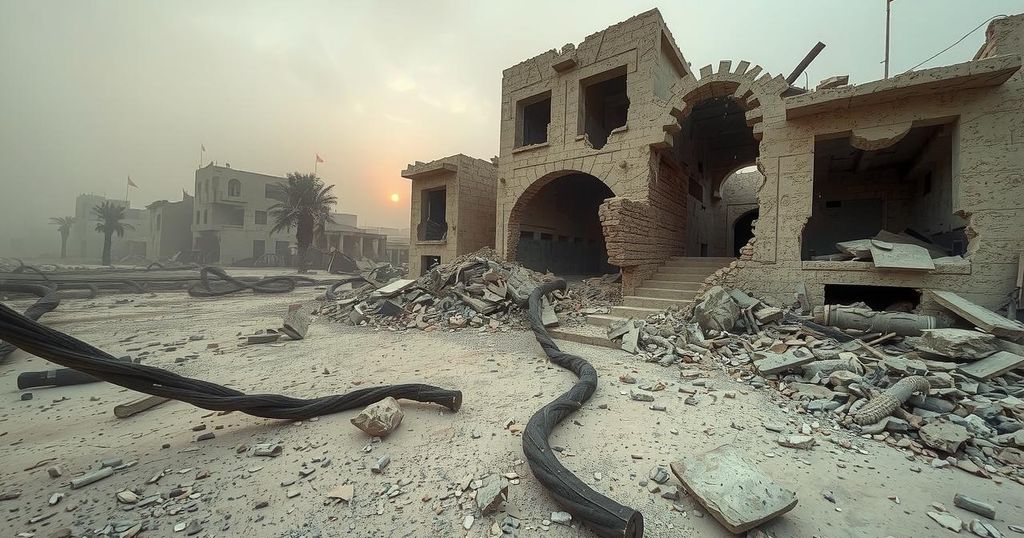Recent airstrikes by the Nigerian military have unintentionally killed over 30 civilians, raising serious concerns about intelligence failures and operational oversight. The culture of impunity and lack of accountability for military personnel continue to exacerbate these tragedies. Critics emphasize the need for improved training, stricter oversight, and a focus on protecting civilian lives in the pursuit of security.
In recent months, the Nigerian military has unintentionally killed over 30 civilians in three separate airstrikes labeled as accidents. Notably, a December airstrike in Sokoto state resulted in the deaths of ten civilians, with the state governor attributing the incident to misidentification. In January, another military strike killed at least 16 civilians, including local farmers, as they were mistaken for criminal gangs. A further incident in February claimed six lives in Katsina state while pursuing armed assailants.
Historically, the Nigerian military’s airstrikes have been aimed at armed groups in the conflict-prone northern regions; however, they have inadvertently claimed countless civilian lives, primarily among local populations. The military’s repeated assertions of targeting armed groups often contrasted starkly with the realities on the ground. Following such incidents, the military sometimes attributes the casualties to flawed intelligence and publicly expresses remorse.
The increase in air assaults is bolstered by assistance from international allies like the United States and the United Kingdom, amid rising threats posed by criminal gangs in northern Nigeria. Research indicates that the Nigerian Air Force has conducted numerous airstrikes resulting in civilian deaths, raising serious concerns about the effectiveness of its operational strategies.
It has been suggested that severe intelligence failures contribute significantly to these tragic outcomes. For instance, following an errant strike in Kaduna state, local residents reported alerting military units of their errors, yet a subsequent strike exacerbated the fatalities. The advent of drone warfare has complicated the situation, as many African nations, including Nigeria, have acquired drones, primarily from China and Turkey, ahead of adequate training and operational protocols.
Experts assert that the core challenges lie in inadequate intelligence, oversight, and operational supervision. Anietie Ewang of Human Rights Watch emphasizes that the focus should not solely be on access to drone technology but rather on how military personnel engage with such tools. Furthermore, there is a pressing need for improved collaboration and accountability in military actions.
Despite some acknowledgment of the issues, the culture of impunity remains entrenched within the military, as evidenced by the lack of substantial consequences for personnel responsible for these incidents. Efforts toward justice have often been limited to internal reviews, with little to no public disclosure or accountability.
Maj-Gen Edward Buba reported that two military personnel are currently facing court martial for their roles in a recent encounter, though relevant action often excludes public scrutiny to preserve troop morale. Ewang reiterates that while some measures have been taken towards justice, a systemic culture lacks the necessary accountability measures to ensure civilian safety.
Communities affected, such as those in Tudunbiri, continue to seek justice amidst promises of restitution that remain unfulfilled. Ewang emphasizes the importance of acknowledging and compensating victims accurately to restore trust and integrity. The military has a concerning history of operational errors, particularly in volatile regions, raising questions about the efficacy of their airstrike strategies in mitigating insurgencies.
For improved military efficacy, critics argue that the Nigerian armed forces require enhanced intelligence capabilities, stricter oversight, and comprehensive training programs. Strengthening these areas is essential to diminish the likelihood of misidentification and accidental casualties. The call for both national accountability and international collaboration is crucial to ensure airstrikes do not further endanger civilian lives.
In summary, the Nigerian military’s accidental airstrikes have resulted in significant civilian casualties, highlighting critical deficiencies in intelligence and operational oversight. Despite international support and the acquisition of advanced military technology, a culture of accountability must be established to protect civilians. The need for better training, collaboration, and a reassessment of military strategies is paramount to prevent future tragedies and ensure the effectiveness of counterinsurgency efforts.
Original Source: www.bbc.com




